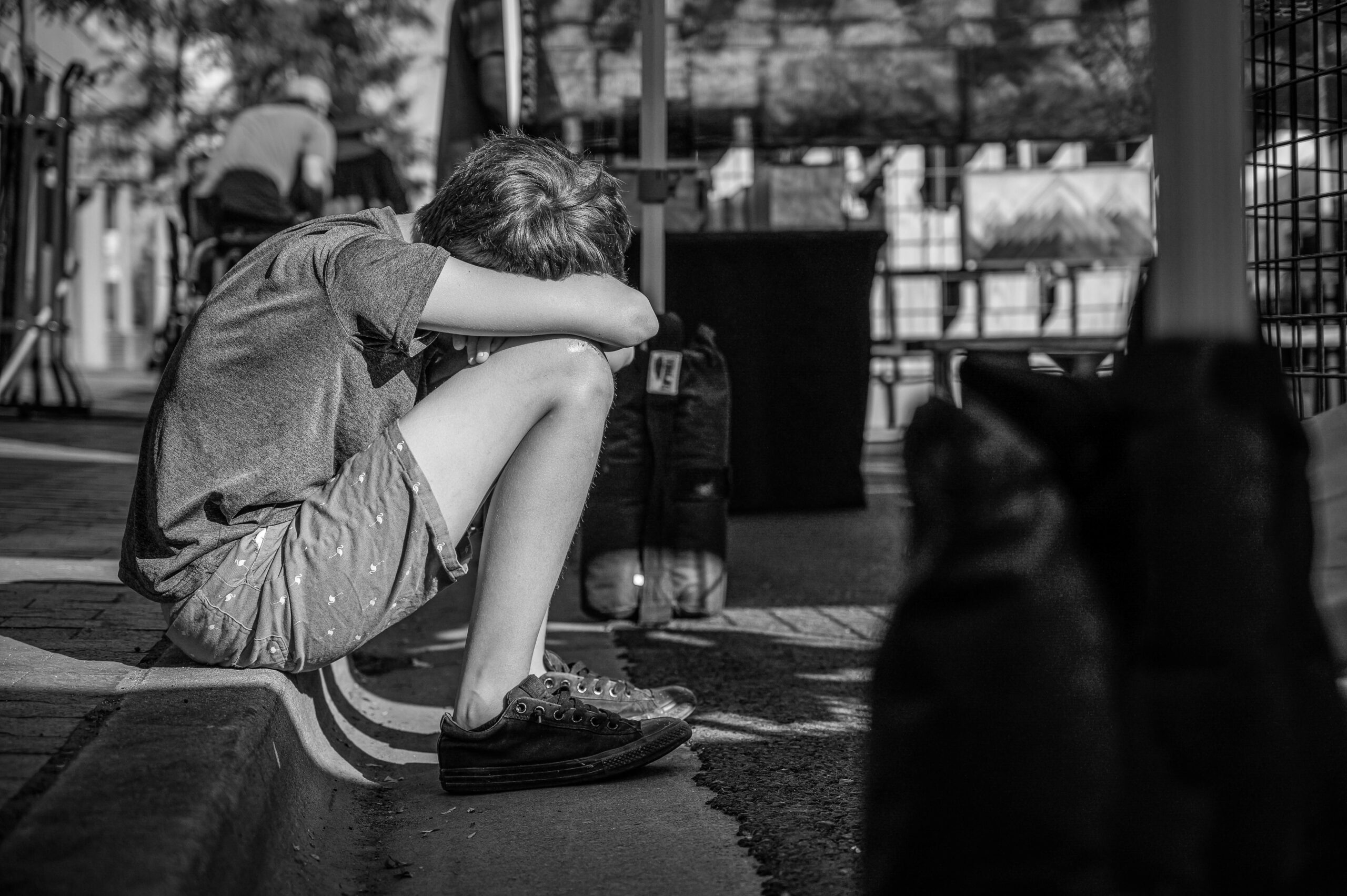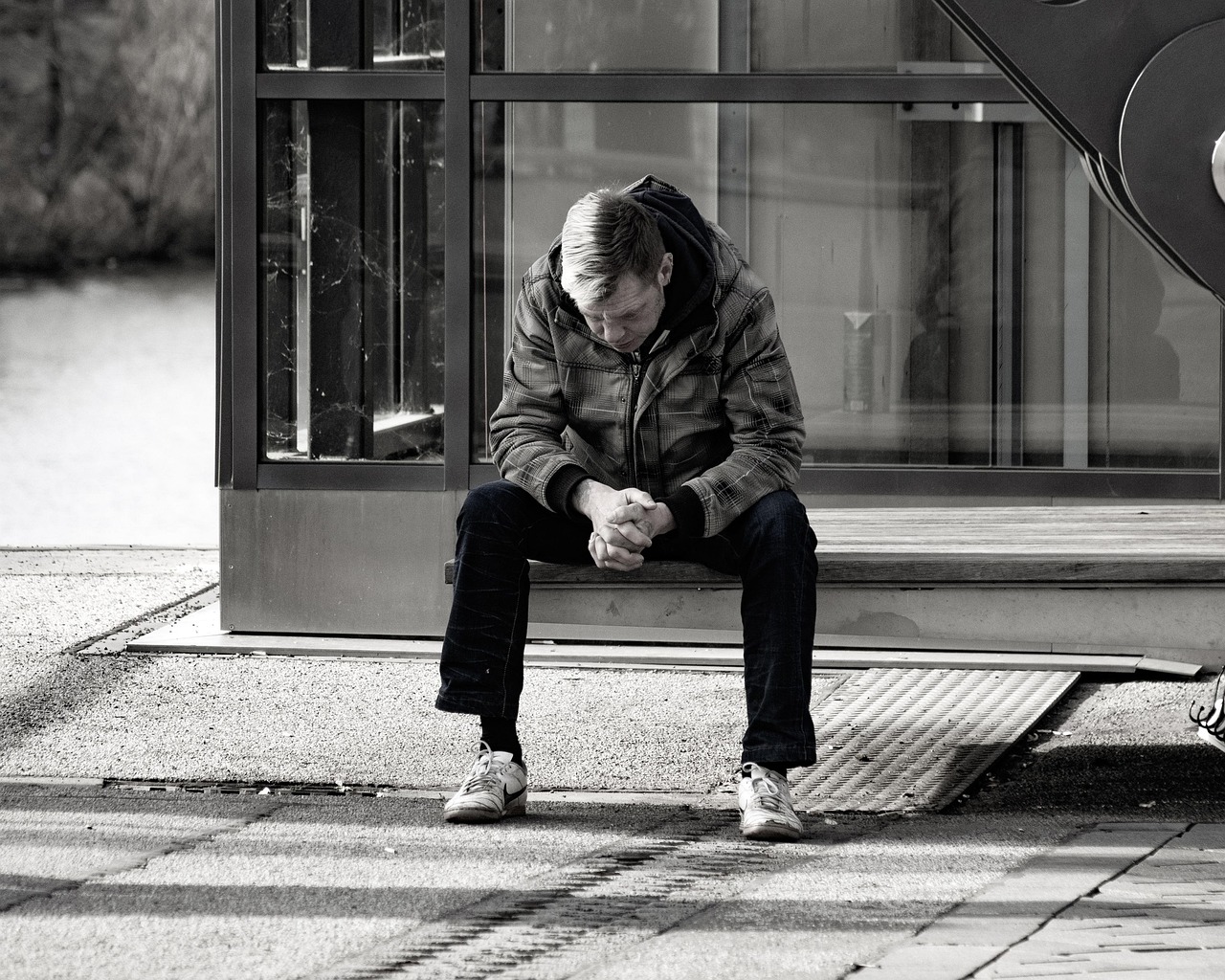“I’m Tired of Life” vs “I Want to Die”: Understanding the Difference
“I’m Tired of Life” vs “I Want to Die”: Understanding the Difference
Learn the difference between “I’m tired of life” and “I want to die,” why it matters, and how to respond with compassion, support, and understanding.
Read Disclaimer
There are words that slip out in moments of exhaustion and pain that carry a weight we don’t always recognize until later. Phrases like “I’m tired of life” and “I want to die” can sound similar to the outside world, but their meanings often differ in profound and important ways. When someone says they are tired of life, they may not literally want to end their existence, but they are overwhelmed, burdened, and feeling defeated by circumstances. When someone says they want to die, however, it signals a more immediate, critical level of despair, often associated with suicidal ideation. Recognizing the distinction between the two is not just about semantics—it can mean the difference between offering comfort, seeking support, or stepping in to save a life.
Every human being has moments when life feels too heavy to carry. Stress piles up, dreams slip through our fingers, relationships fracture, health declines, or grief plants its roots deep in the soul. During these times, many people whisper to themselves or to a trusted person, “I’m just so tired of life.” It’s a cry for rest, relief, and understanding. The person may not want death, but they desperately want a break from the constant weight pressing down on them. This statement, though serious, often reflects emotional exhaustion rather than a direct desire to end one’s life. It’s about wanting to escape pain, not existence.

On the other hand, saying “I want to die” often signals a darker place. This is when pain has seeped so deeply into a person’s sense of self and future that living feels unbearable. It might not always mean they are actively planning to harm themselves, but it does indicate a level of hopelessness where death feels like a solution. Here, the conversation changes. It requires urgent compassion, presence, and often professional intervention. Understanding the difference between these two expressions helps us respond in ways that are not dismissive but supportive, offering hope where it feels lost.
From a psychological perspective, “I’m tired of life” often stems from burnout, depression, chronic stress, or grief. It’s connected to emotional depletion. The brain, under prolonged stress, floods with cortisol, impairing our ability to think clearly and feel motivated. People may find themselves saying these words after sleepless nights, difficult losses, financial struggles, or long battles with illness. Their bodies may feel heavy, their minds foggy, and their spirits drained. They aren’t necessarily suicidal, but they’re at risk of slipping deeper into despair if ignored. Recognizing this early allows us to step in with empathy, rest, and support systems that restore energy and hope.
“I want to die” carries different neurological underpinnings. Research shows that suicidal ideation often emerges when parts of the brain associated with future planning and emotional regulation—like the prefrontal cortex—become overwhelmed by pain signals from the limbic system. In such moments, the individual struggles to see beyond the present suffering. To them, death doesn’t appear as an ending but as an escape. It’s less about wanting life to end and more about wanting unbearable pain to stop. This insight is critical for loved ones and caregivers—it reframes suicidal ideation not as a desire for nonexistence but as a desperate attempt at relief.

In real-life conversations, the lines between these two statements can blur. A teenager overwhelmed by exams might mutter, “I’m so tired of life,” without meaning anything more than needing a break from pressure. An elderly person battling chronic illness may say the same words, reflecting years of exhaustion. Contrast this with someone who repeatedly says, “I want to die,” especially alongside other warning signs like giving away belongings, withdrawing from loved ones, or talking about being a burden. These signs demand immediate attention. Listening closely to language—and its context—becomes a life-saving skill.
Practical application comes in the way we respond. When someone says, “I’m tired of life,” the best response is not dismissal but validation. A gentle acknowledgment like, “I hear how exhausted you feel. That must be really hard,” can open space for them to share more. Suggesting rest, offering help with practical burdens, or encouraging them to talk to a counselor can be invaluable. But when someone says, “I want to die,” the response should be more urgent. Asking directly about their safety—“Are you thinking about hurting yourself?”—doesn’t plant the idea in their head; instead, it shows you care enough to listen and act. If danger seems present, guiding them toward professional crisis help becomes essential.
The stigma surrounding conversations about despair often silences people before they ever ask for help. Many fear being judged, misunderstood, or dismissed. By understanding the subtle differences in expressions of pain, we become safer people to confide in. Empathy doesn’t require fixing someone’s problems; it requires presence. Simply sitting with someone in their exhaustion or despair communicates that their feelings matter. This presence, quiet but steady, often interrupts the cycle of hopelessness.
Stories from survivors highlight this difference vividly. One young woman who struggled with depression explained how often she told her family, “I’m just tired of life.” They assumed she was exaggerating, brushing it off as teenage drama. But as her exhaustion deepened into hopelessness, the statement shifted to, “I don’t want to live anymore.” It was only when a close friend listened, without judgment, that she felt safe enough to seek therapy. Today, she describes that conversation as the turning point that saved her. Her story underscores why listening carefully matters—it’s not about overreacting, but about recognizing when exhaustion tips into crisis.
Science also reminds us that hopelessness is not permanent. Neuroplasticity—the brain’s ability to rewire itself—means new patterns of thought and emotion can form, even after years of despair. Practices like cognitive-behavioral therapy, mindfulness, medication when needed, and social connection can literally change the brain’s chemistry and structure. This gives hope not only to those struggling but also to the loved ones who stand by them. A person saying “I want to die” today can, with support, find themselves saying, “I want to live differently” tomorrow.
It’s also important to consider cultural and generational differences in how people express pain. In some cultures, saying “I’m tired of life” may be a common way of expressing grief or hardship, without suicidal intent. In other contexts, such words might be taken as deeply alarming. Learning to navigate these nuances requires sensitivity and, sometimes, asking clarifying questions. The goal isn’t to label someone’s feelings but to understand them in their lived experience.

For those who personally resonate with these phrases, self-reflection helps. If you find yourself saying, “I’m tired of life,” consider what parts of life feel heavy. Is it work, relationships, health, or something else? Naming the weight is the first step toward addressing it. And if you find yourself thinking, “I want to die,” know that these thoughts are not shameful, but they are serious. They signal pain that deserves attention, not silence. Reaching out to a trusted friend, doctor, or crisis hotline can feel daunting, but it opens the door to support.
Loved ones can also take proactive roles in prevention. Checking in regularly, offering nonjudgmental spaces for conversation, and reducing stigma around mental health make a huge difference. Simple questions like, “How are you really doing?” or “Do you feel safe?” can break through silence. These aren’t grand gestures, but they create life-saving moments of connection.
The distinction between “I’m tired of life” and “I want to die” may seem small, but in reality, it reflects two vastly different emotional states—one of exhaustion and one of despair. Understanding them equips us to respond with the right kind of support. While exhaustion needs rest, relief, and encouragement, despair demands urgent, compassionate intervention. Both, however, require us to listen, to take seriously the language of pain, and to hold space for hope.
In the end, these conversations come down to presence and humanity. Life is complicated, often overwhelming, and sometimes unbearably painful. But when we choose to listen, when we refuse to dismiss or minimize, we become a bridge between despair and possibility. For anyone who has ever whispered, “I’m tired of life” or “I want to die,” the truth remains: your life has meaning, your pain matters, and your story is still unfolding. Hope doesn’t always arrive as a lightning bolt—it often begins as a quiet reminder that tomorrow can be different, and that you don’t have to face it alone.
FAQs with Answers
- What does “I’m tired of life” usually mean?
It often reflects emotional exhaustion, burnout, or feeling overwhelmed by life’s struggles rather than a direct wish to die. - What does “I want to die” mean?
It usually signals suicidal ideation, where the person feels hopeless and sees death as a way to escape unbearable pain. - Are “I’m tired of life” and “I want to die” the same thing?
No. The first often means exhaustion and wanting relief, while the second signals a deeper crisis requiring immediate support. - Why is it important to distinguish between these phrases?
Because the right response can make a difference—exhaustion may need rest and validation, while suicidal thoughts need urgent care. - Is saying “I’m tired of life” always a warning sign?
Not always, but it should never be dismissed. It indicates significant emotional strain that can worsen if ignored. - How can I tell if someone means “I want to die” literally?
Look for additional signs like withdrawal, hopelessness, giving away possessions, or directly talking about suicide. - Should I take “I’m tired of life” seriously?
Yes. It may not always mean suicidal intent, but it signals that the person is struggling and needs compassion and support. - What are common reasons people feel tired of life?
Burnout, chronic stress, trauma, financial strain, illness, grief, or prolonged emotional pain. - What causes someone to say “I want to die”?
It often comes from overwhelming hopelessness, untreated depression, trauma, or a sense of being a burden. - Is it dangerous to ignore these statements?
Yes. Ignoring such expressions can leave people feeling unseen, isolated, and at greater risk of worsening despair. - Can talking about suicide encourage it?
No. Asking directly about suicidal thoughts actually reduces risk by showing care and opening conversation. - What should I do if someone says, “I want to die”?
Stay calm, listen without judgment, ask if they feel safe, and connect them with professional or crisis support. - What if someone says they’re tired of life but denies suicidal intent?
Validate their feelings, encourage rest, and gently suggest therapy or support to prevent worsening distress. - Can hopelessness be temporary?
Yes. Though it feels permanent, hopelessness often shifts with time, support, and small steps toward healing. - How does exhaustion differ from suicidal despair?
Exhaustion is about wanting relief from stress, while despair is about believing life itself is unbearable. - What role does the brain play in hopelessness?
Chronic stress disrupts brain chemistry, while suicidal ideation often comes from impaired emotional regulation and future planning. - Is professional help necessary for both situations?
Professional help benefits both, but suicidal thoughts require urgent attention from mental health specialists. - How can mindfulness help someone tired of life?
Mindfulness grounds people in the present, reducing overwhelming thoughts and creating moments of relief. - What role does therapy play?
Therapy helps by identifying causes, reshaping negative thought patterns, and offering coping strategies. - How can loved ones support someone tired of life?
By listening, offering help, reducing stigma, and encouraging small steps toward healing. - What should I avoid saying to someone in despair?
Avoid dismissive remarks like “cheer up” or “others have it worse.” These minimize their pain and increase isolation. - Are there physical signs of hopelessness?
Yes. Poor sleep, fatigue, changes in appetite, and withdrawal from normal activities can signal emotional strain. - Can spiritual practices help?
For many, prayer, meditation, or spiritual reflection provide comfort, meaning, and hope in difficult times. - How can journaling help?
It helps process emotions, identify triggers, and recognize small victories that rebuild hope. - Does social connection make a difference?
Absolutely. Human connection reduces loneliness, validates pain, and restores a sense of belonging. - What should I do if I feel tired of life myself?
Pause, identify what’s weighing you down, and consider reaching out to a trusted friend, therapist, or support line. - Is hopelessness common in chronic illness?
Yes, living with long-term health challenges can increase feelings of exhaustion and despair. - Can small daily actions help?
Yes. Creating a routine, spending time in nature, or simple acts like walking can reduce feelings of heaviness. - What if I don’t know what to say to someone struggling?
Sometimes silence and presence are enough. Simply listening and validating their pain is powerful. - What is the most important takeaway from these phrases?
Both expressions matter, but “I want to die” signals a critical need for urgent support and intervention.

thc tinctures for energy focus and motivation
Si te late jugar en línea, MX777Casino podría ser tu próximo destino. Echale un ojo a los juegos que ofrecen y a ver si te animas mx777casino. ¡Suerte!
Big fan of ‘gà chọi c1’ here! Hoping to find some good matches on this site. Check out gà chọi c1.
Bước xác minh tài khoản (KYC) tại đăng ký 66b có phần linh hoạt hơn so với nhiều nền tảng khác. Bạn chỉ cần xác minh danh tính khi rút tiền lần đầu hoặc khi số tiền rút vượt ngưỡng quy định, thường là 10 triệu VND. Quá trình này yêu cầu ảnh CMND/CCCD và một tấm ảnh selfie cầm giấy tờ tùy thân, đảm bảo an toàn cho cả người chơi và nền tảng. TONY12-16
online casino for us players paypal
References:
http://cloud4.co.kr/bbs/board.php?bo_table=data&wr_id=665616
online real casino paypal
References:
https://prefereplus.com/employer/best-payid-casinos-in-australia-2025-payid-online-pokies/
ECOGRA and GLI auditing provides independent verification of our gaming systems and random number generators. We implement SSL encryption technology across all transactions and data exchanges to protect player information. Company with legitimate Curaçao eGaming licensing, ensuring regulatory compliance and secure gaming operations. Game return-to-player (RTP) percentages are publicly displayed for all titles, ensuring transparency in expected returns.
Our withdrawal limits accommodate various player preferences with daily limits up to $3,000, weekly limits of $7,500, and monthly maximums reaching $15,000. These games combine slot-style gameplay with poker strategy elements for varied entertainment options. We partner with Evolution Gaming and other premium providers to deliver authentic casino experiences. If you happen to notice suspicious activity on your account, you should immediately change the password you use to log in to the Level Up online casino website.
References:
https://blackcoin.co/ufo9-casino-your-place-to-play-your-way/
gamble online with paypal
References:
https://cannabisjobs.solutions/companies/newest-casino-sites/
Playinexch365, been using this for a while. They have a pretty solid exchange platform, especially if you like betting on different things. Worth a peek! playinexch365.
online casino for us players paypal
References:
https://skilling-india.com/employer/top-paypal-online-casino-list-by-luckygambler-december-2025/
Manche Freispiele gelten nur für bestimmte Slots, andere haben eine kurze Gültigkeit. Wenn du auf Freispiele stehst und Bonusangebote liebst, solltest du dir Lemon Casino auf keinen Fall entgehen lassen. Im Lemon Casino startest du direkt mit 20 Freispielen für Book of Dead, ganz ohne Einzahlung. HitnSpin überzeugt mit 50 Freispielen auf Big Bass Splash, die nur dreimal umgesetzt werden müssen – ideal für einen schnellen Start. ✅ Energy Chest – jeden Tag öffnen und Freispiele gewinnen Manche Casinos erlauben den Einsatz auch bei Live Casino oder Tischspielen – das hängt vom Anbieter und den Bonusbedingungen ab. Nachdem du deine Freispiele ohne Einzahlung genutzt haben, möchtest du vielleicht Geld einzahlen, um weiterspielen zu können.
Sehr oft ist ein Echtgeld Bonus ohne Einzahlung mit einem Bonus Code verknüpft. Es kann manchmal eine zeitliche Begrenzung geben, die mit einem erhaltenen Casino Bonus ohne Einzahlung verbunden ist. Da eigentlich niemand wirklich Echtgeld zu verschenken hat ist das auch bei Online Casinos nicht anders.
References:
https://s3.amazonaws.com/new-casino/verde%20casino%20aktionscode.html
Auch verschiedene Tischspiele wie Blackjack und Roulette sind hier zu finden. Die Spielautomaten im North Casino bieten eine große Vielfalt und spannende Spielerlebnisse. Diese Online Casinos bieten eine vertrauenswürdige Plattform mit einer Vielzahl diverser Spiele. Die besten Online Casinos in Deutschland werden von erfahrenen Casino-Testern auf Basis von Spielauswahl, Sicherheit, Boni und Zahlungsmethoden bewertet. Für Spieler innerhalb Deutschlands sind nur Casinos, die eine deutsche Lizenz haben, vorgesehen.
Der Kundenservice ist eines der wichtigsten Kriterien, denn für uns ist es wichtig, ob ein online Casino in Deutschland angemessen mit einem Kunden kommunizieren kann. Aus diesem Grund prüfen unsere Spezialisten den Kundenservice für deutsche Spieler. Wir überprüfen immer die Datenschutzmethoden, die das beste deutsche Online Casino verwendet, sowie das Vorhandensein einer gültigen Lizenz.
References:
https://onlinegamblingcasino.s3.amazonaws.com/native%20american%20casinos.html
HitnSpin bietet einen 24/7 Support, der sicherstellt, dass Spieler nie mit ihren Problemen allein gelassen werden. Wenn Sie einen Gewinn erzielt haben, möchten Sie diesen natürlich schnell und unkompliziert erhalten. Die App bietet eine reibungslose Performance und schnellen Zugriff auf alle Funktionen des Casinos. Hier finden Spieler alles, von klassischen Fruchtslots bis hin zu modernen Video-Slots mit komplexen Features.
Jedes dieser Freispiele hat (so wie alle noch folgenden Freispiele) einen Wert von 20 Cent. Und als ob das noch nicht genug wäre, erhältst du zusätzlich auch noch 100 Freispiele für den Slot “Big Bass Splash” von Pragmatic Play dazu. Wähle während deiner Einzahlung einfach den Willkommensbonus aus und freue dich auf einen 100% Bonus, der dir im besten Fall stolze 300 Euro beschert. Zudem dürfen sich alle Neukunden auf einen sehr attraktiven Willkommensbonus freuen, auf den wir nun genauer eingehen möchten. Wir starteten mit dem HitNSpin Casino, in dem man uns als Neukunden einen beachtlichen XXL Willkommensbonus in Aussicht gestellt hat. Sollten Sie einmal Probleme beim Einloggen haben, bietet die mobile App einen integrierten Support-Chat, der Ihnen schnell hilft. Sobald Sie sich angemeldet haben, können Sie auf alle Ihre Lieblingsspiele zugreifen, Ihr Guthaben überprüfen und Boni anfordern.
References:
https://onlinegamblingcasino.s3.amazonaws.com/casino%20du%20liban.html
References:
Women anavar before and after
References:
http://historydb.date/index.php?title=greenvilhelmsen6165
References:
Anavar before and after female pictures 4chan
References:
https://instapages.stream/story.php?title=claim-your-bonus
References:
Test anavar cycle before and after
References:
https://writeablog.net/beltclient74/buy-anabolic-steroids-usa-domestic-shipping-and-lab-tested
References:
Isleta casino
References:
http://historydb.date/index.php?title=cookmark66
Thanks for the guidelines shared on your own blog. Something also important I would like to express is that fat loss is not all about going on a fad diet and trying to get rid of as much weight that you can in a set period of time. The most effective way to lose weight is by having it bit by bit and obeying some basic ideas which can allow you to make the most from your attempt to lose fat. You may know and already be following a few of these tips, yet reinforcing know-how never hurts.
References:
Cherokee casino roland
References:
http://karayaz.ru/user/brassgarage0/
References:
Route 66 casino albuquerque
References:
https://securityheaders.com/?q=https://wd40casino.blackcoin.co
adverse effects of anabolic steroids
References:
https://yogicentral.science/wiki/How_to_Choose_the_Best_Steroids_Testosterone_Powder_A_Complete_Buying_Guide
strongest legal steroids
References:
https://bookmarking.win/story.php?title=jetzt-im-online-shop-kaufen
References:
Before & after pics of.women on anavar
References:
https://atavi.com/share/xnps08zal9kd
2ahukewipubipvmvnahuy7p4khwr8cqaq4lyoanoecaeqfw|the best steroids for muscle growth
References:
https://atavi.com/share/xnlhrmzncgkw
References:
Testosterone anavar before and after
References:
https://king-wifi.win/wiki/Anavar_Oxandrolone_effets_risques_cure_et_alternatives
References:
Female anavar cycle before and after
References:
https://pad.geolab.space/s/zj8ASGlQH
oral steroids for muscle building
References:
https://livebookmark.stream/story.php?title=testosterone-basso-uomo-che-fare-quali-rimedi-andrologo-risponde
%random_anchor_text%
References:
https://hikvisiondb.webcam/wiki/CIMA_PROSPECTO_TESTAVAN_20_MG_G_GEL_TRANSDERMICO
References:
Test prop anavar before and after pictures
References:
https://historydb.date/wiki/Anavar_Results_Complete_Timeline_Week_by_Week_How_Long_To_See_A_Change
References:
Michigan casinos
References:
https://lovebookmark.win/story.php?title=candy96-online-casino-australia-100-welcome-bonus-and-other-bonuses
References:
Phone casino games
References:
https://gay-raymond-4.hubstack.net/sugar96-login-and-registration-guide
References:
Seneca buffalo creek casino
References:
https://dlx.hamdard.pk/user/profile/347422
References:
Casino queen st louis
References:
http://okprint.kz/user/mealmap94/
References:
Craps system
References:
https://posteezy.com/candy-crush-saga-level-91-92-93-94-95-96-97-98-99-100-losung
References:
Crown casino sydney
References:
https://ai-db.science/wiki/Sugar_Rush_1000_free_play_in_modalit_demo_e_recensione
References:
Banque casino fr espace client
References:
https://www.instructables.com/member/rhythmleek5/
References:
William hill online casino
References:
https://www.instapaper.com/p/17398692
References:
Blackjack basic strategy chart
References:
https://dokuwiki.stream/wiki/Live_Dealer_Casino_Games_at_Candy96_RealTime_Blackjack_Roulette_More
References:
Blue rodeo in our nature
References:
http://karayaz.ru/user/neonberry99/
%random_anchor_text%
References:
https://commuwiki.com/members/jewelfender85/activity/16285/
how do athletes get steroids
References:
https://lovewiki.faith/wiki/Trembolona_enantato_Comprar_Precio_online_en_Espaa
best steroid for muscle mass
References:
https://morphomics.science/wiki/Amazon_Los_ms_vendidos_Mejor_Aceleradores_Testosterona_de_Nutricin_Deportiva
%random_anchor_text%
References:
https://xypid.win/story.php?title=deficit-de-testosterona-nuevo-tratamiento-urologia
%random_anchor_text%
References:
https://elearnportal.science/wiki/Winstrol_Vs_Anavar_Which_One_Is_Right_for_You
anavar supplement
References:
https://pattern-wiki.win/wiki/Dianabol_fr_Bodybuilding_Beste_Dosierung_Zyklen_und_Stacks_fr_enorme_Zuwchse_WikiStero_La_Bible_des_Strodes_Anabolisants